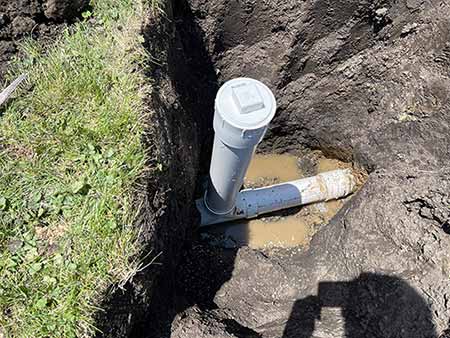
Because sewer lines are primarily out of sight, they are usually not included when homeowners inventory their home’s plumbing system. As a result, House In Order says, the plumbing maintenance program for most homes does not cover the underground sewer lines in the property.
The only time homeowners pay attention to their sewer lines is when they have a sewer line emergency, the system stops working or doesn’t work properly. Typically, this happens when they have slow-running drains because of a sewer clog or the sewer line backs up into the home.
Due to how much damage they can cause, sewer line problems should rank as high as the other emergencies in your home. Treating sewer line issues as potential emergencies and taking steps to prevent them will save you a lot of heartache and money.
Why sewer line repair is considered an emergency
Events are ranked as emergencies when massive negative impacts accompany their occurrence. What are the likely effects of a sewer line issue on your home?
Health and sanitation
A malfunctioning sewer line exposes your family to avoidable health issues. Sewer lines ensure your family does not come in contact with wastewater from the home.
This wastewater contains raw sewage and a host of other harmful things, which will not only make your house unpleasant to live in, but can make you ill. A damaged sewer line defeats the purpose of having a sewer system in your home.
Damaged sewer lines also compromise your home’s drinking water. If the sewage seeps into groundwater, it can pollute the environment and endanger whole communities.
Air quality issues
Part of the reason for keeping sewage sealed inside sewer lines is to contain toxic or unpleasant gases produced during the breakdown of waste. This includes methane, a toxic gas and an abundance of other dangerous and foul-smelling gases.
If a sewer line is damaged, it may lose its ability to contain these gases and they can seep into your home or the surrounding areas, causing outdoor air pollution and indoor air quality issues.
Structural damage
A broken sewer line can undermine the structural integrity of your home by doing innocuous damage to the building’s foundation. This happens when a leaky sewer line discharges water into the foundation.
Typically, homeowners are unaware of the problem until they see the common signs of foundation failure in their building. Compared to the enormous cost of foundation repair, the cost of preventing sewer line emergencies in your home is peanuts.
Massive financial setback
You do not want to start to imagine the spiraling cost of fixing a sewer line emergency. Depending on the cause and extent of the problem and how the issue unfolded, that cost can include expensive excavation of your yard, installation of new pipes, fixing damage caused by sewage flowing into your home, reinforcing the foundations of the building, and improving your damaged landscaping. The cost of repairing this avoidable problem can easily exceed $25,000.
Damage to others’ property
In addition to damaging your home, a faulty sewer line can damage other people’s property. If the sewer line issue is judged to have also affected the city sewer lines, you will be expected to pay for the damage.
Wastewater from your ruptured sewer line may also overflow into your neighbors’ yard or driveway. This not only entails additional costs but can expose you to lawsuits.
How to avoid sewer line emergencies
Preventing problems with your sewer lines is the best way to avoid them. Periodic sewer camera inspections of your sewer lines by a professional plumber will help you detect issues at the early stages. You can then take steps to stop the minor problems from becoming major costs. Some of the signs that you have a budding problem inside your sewer lines include the following:
Frequent drain blockages
Frequent clogging of the drains inside your home might indicate issues with the sewer lines. If blocked drains are cleaned only for the case to happen again, you may need to inspect your sewer lines.
Slow-running drains
A single slow-running drain in the house is normally not a sign of problems with the sewer lines. But if multiple drains in the home are slow, this might be the ripple effect of a clog inside the sewer lines.
Foul odors in the home
The smell of raw sewage or the odor of stagnant dirty water are two unpleasant smells you may endure if your sewer line is blocked. These odors find their way into the home if sewer pipes are leaky, corroded, or clogged. A professional hydro jetting service can fix this issue quickly.
Strange noises from the drains
Gurgling sounds from inside the drains each time you pour water into them is a sure sign of trouble. If this happens with all the home drains, you can be sure there is an issue with your sewer lines.